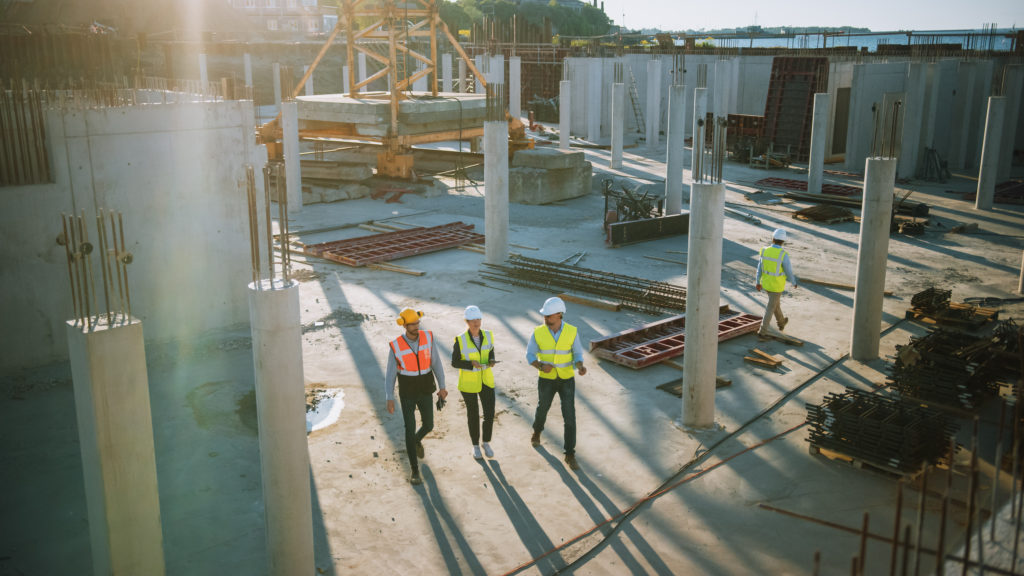War in Ukraine : what are the consequences for the French real estate market?
The current geopolitical context has consequences for most areas of our lives, even if they are not immediately obvious. Real estate is no exception, and the war is significantly changing the situation, with more or less direct consequences. It is in the interest of both households and real estate professionals to take these changes into account in order to adapt their respective projects. Let’s try to decipher what, in the short term, should impact the French property market.
A drop in property purchasing power
Everything seems to be costing households more, particularly in terms of property. There is therefore a legitimate concern about their ability to carry out their projects and therefore to keep the property market functioning.
Rising prices for everyday life
The government describes it as high, even galloping inflation: the final price of many so-called “basic necessities” is rising sharply. If some increases were already questionable for several months (the price of fruit and vegetables, wood and energy in particular), the Russian-Ukrainian conflict seems to cause a strong increase in inflation: many products manufactured in the East or requiring raw materials from the East have difficulty reaching our shores and their prices therefore increase mechanically.
As for energy, it is not just the energy needed to heat and light us, although this is a problem and requires increasing state intervention to protect household budgets. Many manufactured goods require oil to be produced – for example, plastics – and soaring prices at the pump also have an impact on industries that are forced to raise their prices accordingly.
This reduces the amount of money households have to live on, after paying higher electricity and gas bills and buying more expensive goods in shops.
Soaring material prices
Copper, wood, tiles, steel and others: the increase in the price of materials is particularly noteworthy, and is having a major impact on the property sector. Russia and Ukraine are major suppliers of steel, the price of which is soaring with the conflict but which is needed to make reinforced concrete. Russia is also the world’s second largest producer of aluminium, the cost per tonne of which is over the historic threshold of $4,000: the price of windows and pergolas is strongly impacted, when there is not a shortage.
Overall, new home builders are suffering from more expensive and sometimes uncertain supply. This will affect the profitability of existing contracts and cause prices to rise significantly in the coming months.

But it is often households that suffer the financial consequences: contracts for the construction of individual houses (CCMI) include a price indexation clause based on the BT 01 index, which measures the increase in construction costs and is constantly rising. An additional cost of several thousand euros can thus be claimed by the builder, in good faith.
In the case of old buildings, the rise in the price of materials will certainly compromise renovation projects, not to mention the risk of slowing down renovations already underway. Furthermore, many property transactions are aimed at acquiring a property to be renovated: geopolitical uncertainty is generating a caution that is probably already slowing down this market. Finally, households are likely to adopt a wait-and-see attitude, anticipating a possible return to normality at the end of the conflict and a fall in prices. The same reasoning applies to those who fear a collapse of the various markets.
Rising credit rates
Lastly, there is a positive trend in mortgage rates, which continues under the effect of inflationary pressures, aggravated in particular by the geopolitical situation. After remaining at historically low levels even in 2020, the opposite trend is observed and seems likely to continue. Between January and March 2022, rates rose by twenty to forty basis points, with the average twenty-year going from 1.10% to 1.40% gross. The feverishness of the banking market in the face of the geopolitical crisis is leading to a continuation of this rise, which can only reduce the purchasing capacity of households.
Beyond the authorised debt ratio, which in the short term will not take price inflation into account, households faced with rising prices will find it increasingly difficult to meet their monthly loan payments, with a significant risk of default. The banks are aware of this and are adopting a policy aimed at protecting themselves against it: increase in rates but also requirement of residual savings after contribution for example.
Decline in real rental yield
Investment also suffers from the war, as profitability is affected by inflation. If an investor expects a return of 3% and inflation approaches 4%, as is currently the case, his real gain becomes negative. Raising rents is not the best idea, as the tenant already facing rising prices may default.
In concrete terms, property purchasing power is falling and the war in Ukraine, which is not necessarily the cause of all the phenomena, is nevertheless making the situation considerably worse.
A deterioration in the social climate
The economy is directly linked to the social climate of the country, that is a fact. An impoverishment of all (or most) actors can only make it more difficult to live together.
Household morale at half mast
The logical but more subjective consequence of all the above facts is that household morale will obviously suffer from reduced opportunities to consume and make plans. Caution will lead to saving, while the essentials of daily life will become more expensive: leisure will suffer.
Add to this the concrete anxiety felt in the face of an armed conflict, the final scope of which is still uncertain and the consequences not all envisaged: household morale will certainly be affected. However, hope and positivity are the foundations of any property project.
Likely tensions within companies
Another potential effect of war anxiety is that it can limit the possibilities of employees in wage negotiations. While understanding may be the rule in general, it is possible that this could lead to a tense atmosphere after the presidential elections and if the situation – and the conflict – continues for too long.
In passing, it should be noted that the risk of redundancy plans and a reduction in hiring is increased, which is obviously unfavourable to the property market.

A logical slowdown in the number of transactions
All these elements lead to a very logical conclusion: the number of real estate transactions in 2022 should decrease significantly. Even if the figures have yet to prove it, it can be noted that 2021 was the year of all records and that the objectives of real estate professionals for 2022 are therefore certainly (too) ambitious.
In 2021, no less than 1,178,000 transactions were recorded in the old housing market: a historic record. In particular, there were nearly 140,000 sales of single-family homes and 116,700 new homes reserved by individuals (fewer than in 2019, but the number of building permits issued has fallen significantly).
Even before the outbreak of the Ukrainian conflict, the beginning of 2022 showed signs of a slowdown in real estate activity. This can be explained by several factors, such as the implementation of the RE2020 standard, which alone will increase construction costs by 7-10%, and is probably the reason why many projects have accelerated their completion to 2021. Add to this the problem of the price of materials, and the impact on the budget of households considering a new building project could go so far as to make the project unfeasible. This will clearly dampen enthusiasm, to say the least.
Some of these unsuccessful projects could nevertheless see households reorienting themselves towards a purchase in the recent past, with subsidiary consequences. On the one hand, this could limit the fall in the number of transactions, but it would deprive some households of the possibility of buying in the old property at a reasonable budget because of the increased competition. On the other hand, it would lead to a decrease in the supply of real estate, through a decrease in the number of new constructions.

How to sell your property in such a context?
For buyers, only a larger-than-usual budget to make the desired purchase may prove beneficial. But for sellers, let’s end on a positive note, with some advice on how to give yourself the best chance of selling your property as quickly as possible and at the desired price.
First of all, make sure you put a property up for sale with as little work as possible, as this would cause immediate concern in the minds of potential buyers for all the reasons mentioned above.
Then, if you can, wait a few weeks before putting the property up for sale so that the situation becomes clearer: if the conflict ends, the money saved by waiting could be released immediately and real estate activity would increase significantly. You would then have a better chance of selling quickly, and would not suffer from the effect of the durability of your advertisement (a property that has been seen too much is less attractive).
Finally, optimise the quality – and the qualities – of the property for sale. In the context of an offer that has difficulty finding buyers, only the best presented properties will easily find buyers: depersonalise, repaint faded walls, replace worn floors, etc. Don’t forget to work on the visual aspect of your potential garden with the arrival of the warm weather. Make your property a model, at a lower cost, and it will make you money!
A word to the wise, investors will be well advised to look for investments that promise a higher return than the current record inflation. Non-professional furnished rentals, for example, can offer a rate of return of up to 7%.
One month after the start of the war, the future of our citizens’ purchasing power is more uncertain than ever. Real estate will suffer, but we can add a nuance that is synonymous with hope: faced with the need to invest their savings (even if they are small), households will prefer to turn to real estate, which remains a safe haven in the face of other financial investments with even riskier fluctuations in these times of war. Let’s bet that the decline in real estate activity will remain moderate!

